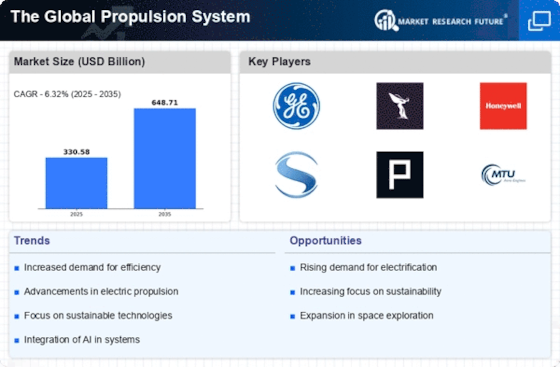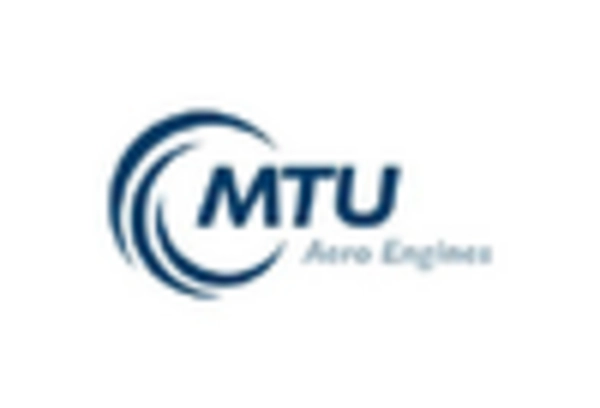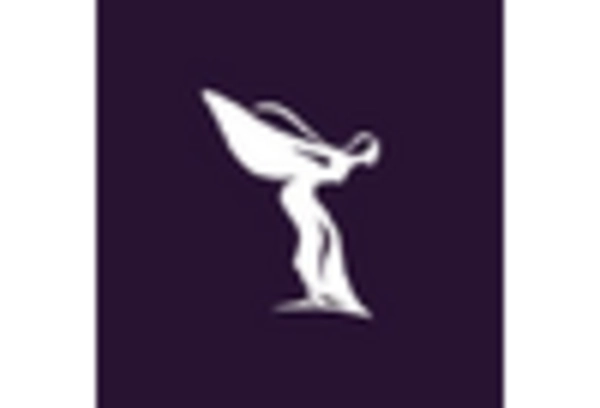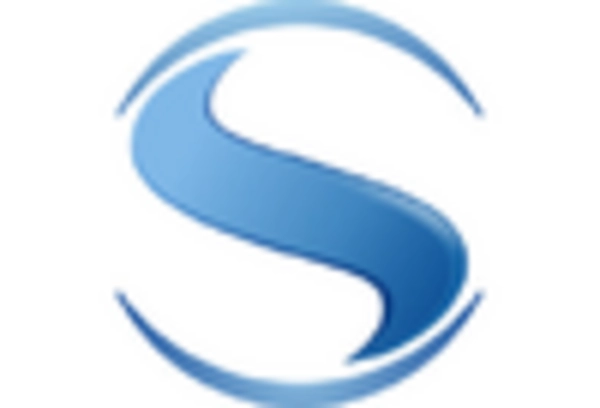- Global Outlook (USD Million, 2018-2032)
Global Propulsion System Market- Type Outlook (USD Million, 2018-2032)
- Air-Breathing
- Gas Turbines & Jet Engines
- Ramjets & Scramjets
- Internal Combustion
- Non-Air Breathing
- Solid Propulsion
- Liquid Propulsion
- Hybrid Propulsion
- Electric Propulsion
Global Propulsion System Market- Application Outlook (USD Million, 2018-2032)
- Missiles
- Aircraft
- Spacecraft
- Unnamed Aerial Vehicles
North America Propulsion System Market- Type Outlook (USD Million, 2018-2032)
- Air-Breathing
- Gas Turbines & Jet Engines
- Ramjets & Scramjets
- Internal Combustion
- Non-Air Breathing
- Solid Propulsion
- Liquid Propulsion
- Hybrid Propulsion
- Electric Propulsion
North America Propulsion System Market- Application Outlook (USD Million, 2018-2032)
- Missiles
- Aircraft
- Spacecraft
- Unnamed Aerial Vehicles
- US Outlook (USD Million, 2018-2032)
US Propulsion System Market- Type Outlook (USD Million, 2018-2032)
- Air-Breathing
- Gas Turbines & Jet Engines
- Ramjets & Scramjets
- Internal Combustion
- Non-Air Breathing
- Solid Propulsion
- Liquid Propulsion
- Hybrid Propulsion
- Electric Propulsion
US Propulsion System Market- Application Outlook (USD Million, 2018-2032)
- Missiles
- Aircraft
- Spacecraft
- Unnamed Aerial Vehicles
- Canada Outlook (USD Million, 2018-2032)
Canada Propulsion System Market- Type Outlook (USD Million, 2018-2032)
- Air-Breathing
- Gas Turbines & Jet Engines
- Ramjets & Scramjets
- Internal Combustion
- Non-Air Breathing
- Solid Propulsion
- Liquid Propulsion
- Hybrid Propulsion
- Electric Propulsion
Canada Propulsion System Market- Application Outlook (USD Million, 2018-2032)
- Missiles
- Aircraft
- Spacecraft
- Unnamed Aerial Vehicles
- Mexico Outlook (USD Million, 2018-2032)
Mexico Propulsion System Market- Type Outlook (USD Million, 2018-2032)
- Air-Breathing
- Gas Turbines & Jet Engines
- Ramjets & Scramjets
- Internal Combustion
- Non-Air Breathing
- Solid Propulsion
- Liquid Propulsion
- Hybrid Propulsion
- Electric Propulsion
Mexico Propulsion System Market- Application Outlook (USD Million, 2018-2032)
- Missiles
- Aircraft
- Spacecraft
- Unnamed Aerial Vehicles
- Europe Outlook (USD Million, 2018-2032)
Europe Propulsion System Market- Type Outlook (USD Million, 2018-2032)
- Air-Breathing
- Gas Turbines & Jet Engines
- Ramjets & Scramjets
- Internal Combustion
- Non-Air Breathing
- Solid Propulsion
- Liquid Propulsion
- Hybrid Propulsion
- Electric Propulsion
Europe Propulsion System Market- Application Outlook (USD Million, 2018-2032)
- Missiles
- Aircraft
- Spacecraft
- Unnamed Aerial Vehicles
- Germany Outlook (USD Million, 2018-2032)
Germany Propulsion System Market- Type Outlook (USD Million, 2018-2032)
- Air-Breathing
- Gas Turbines & Jet Engines
- Ramjets & Scramjets
- Internal Combustion
- Non-Air Breathing
- Solid Propulsion
- Liquid Propulsion
- Hybrid Propulsion
- Electric Propulsion
Germany Propulsion System Market- Application Outlook (USD Million, 2018-2032)
- Missiles
- Aircraft
- Spacecraft
- Unnamed Aerial Vehicles
- Denmark Outlook (USD Million, 2018-2032)
Denmark Propulsion System Market- Type Outlook (USD Million, 2018-2032)
- Air-Breathing
- Gas Turbines & Jet Engines
- Ramjets & Scramjets
- Internal Combustion
- Non-Air Breathing
- Solid Propulsion
- Liquid Propulsion
- Hybrid Propulsion
- Electric Propulsion
Denmark Propulsion System Market- Application Outlook (USD Million, 2018-2032)
- Missiles
- Aircraft
- Spacecraft
- Unnamed Aerial Vehicles
- UK Outlook (USD Million, 2018-2032)
UK Propulsion System Market- Type Outlook (USD Million, 2018-2032)
- Air-Breathing
- Gas Turbines & Jet Engines
- Ramjets & Scramjets
- Internal Combustion
- Non-Air Breathing
- Solid Propulsion
- Liquid Propulsion
- Hybrid Propulsion
- Electric Propulsion
UK Propulsion System Market- Application Outlook (USD Million, 2018-2032)
- Missiles
- Aircraft
- Spacecraft
- Unnamed Aerial Vehicles
- Italy Outlook (USD Million, 2018-2032)
Italy Propulsion System Market- Type Outlook (USD Million, 2018-2032)
- Air-Breathing
- Gas Turbines & Jet Engines
- Ramjets & Scramjets
- Internal Combustion
- Non-Air Breathing
- Solid Propulsion
- Liquid Propulsion
- Hybrid Propulsion
- Electric Propulsion
Italy Propulsion System Market- Application Outlook (USD Million, 2018-2032)
- Missiles
- Aircraft
- Spacecraft
- Unnamed Aerial Vehicles
- Rest of Europe Outlook (USD Million, 2018-2032)
Rest of Europe Propulsion System Market- Type Outlook (USD Million, 2018-2032)
- Air-Breathing
- Gas Turbines & Jet Engines
- Ramjets & Scramjets
- Internal Combustion
- Non-Air Breathing
- Solid Propulsion
- Liquid Propulsion
- Hybrid Propulsion
- Electric Propulsion
Rest of Europe Propulsion System Market- Application Outlook (USD Million, 2018-2032)
- Missiles
- Aircraft
- Spacecraft
- Unnamed Aerial Vehicles
- Asia-Pacific Outlook (USD Million, 2018-2032)
Asia-Pacific Propulsion System Market- Type Outlook (USD Million, 2018-2032)
- Air-Breathing
- Gas Turbines & Jet Engines
- Ramjets & Scramjets
- Internal Combustion
- Non-Air Breathing
- Solid Propulsion
- Liquid Propulsion
- Hybrid Propulsion
- Electric Propulsion
Asia-Pacific Propulsion System Market- Application Outlook (USD Million, 2018-2032)
- Missiles
- Aircraft
- Spacecraft
- Unnamed Aerial Vehicles
- India Outlook (USD Million, 2018-2032)
India Propulsion System Market- Type Outlook (USD Million, 2018-2032)
- Air-Breathing
- Gas Turbines & Jet Engines
- Ramjets & Scramjets
- Internal Combustion
- Non-Air Breathing
- Solid Propulsion
- Liquid Propulsion
- Hybrid Propulsion
- Electric Propulsion
India Propulsion System Market- Application Outlook (USD Million, 2018-2032)
- Missiles
- Aircraft
- Spacecraft
- Unnamed Aerial Vehicles
- China Outlook (USD Million, 2018-2032)
China Propulsion System Market- Type Outlook (USD Million, 2018-2032)
- Air-Breathing
- Gas Turbines & Jet Engines
- Ramjets & Scramjets
- Internal Combustion
- Non-Air Breathing
- Solid Propulsion
- Liquid Propulsion
- Hybrid Propulsion
- Electric Propulsion
China Propulsion System Market- Application Outlook (USD Million, 2018-2032)
- Missiles
- Aircraft
- Spacecraft
- Unnamed Aerial Vehicles
- Japan Outlook (USD Million, 2018-2032)
Japan Propulsion System Market- Type Outlook (USD Million, 2018-2032)
- Air-Breathing
- Gas Turbines & Jet Engines
- Ramjets & Scramjets
- Internal Combustion
- Non-Air Breathing
- Solid Propulsion
- Liquid Propulsion
- Hybrid Propulsion
- Electric Propulsion
Japan Propulsion System Market- Application Outlook (USD Million, 2018-2032)
- Missiles
- Aircraft
- Spacecraft
- Unnamed Aerial Vehicles
- Australia Outlook (USD Million, 2018-2032)
Australia Propulsion System Market- Type Outlook (USD Million, 2018-2032)
- Air-Breathing
- Gas Turbines & Jet Engines
- Ramjets & Scramjets
- Internal Combustion
- Non-Air Breathing
- Solid Propulsion
- Liquid Propulsion
- Hybrid Propulsion
- Electric Propulsion
Australia Propulsion System Market- Application Outlook (USD Million, 2018-2032)
- Missiles
- Aircraft
- Spacecraft
- Unnamed Aerial Vehicles
- Rest of Asia-Pacific Outlook (USD Million, 2018-2032)
Rest of Asia-Pacific Propulsion System Market- Type Outlook (USD Million, 2018-2032)
- Air-Breathing
- Gas Turbines & Jet Engines
- Ramjets & Scramjets
- Internal Combustion
- Non-Air Breathing
- Solid Propulsion
- Liquid Propulsion
- Hybrid Propulsion
- Electric Propulsion
Rest of Asia-Pacific Propulsion System Market- Application Outlook (USD Million, 2018-2032)
- Missiles
- Aircraft
- Spacecraft
- Unnamed Aerial Vehicles
- Middle East & Africa Outlook (USD Million, 2018-2032)
Middle East and Africa Propulsion System Market- Type Outlook (USD Million, 2018-2032)
- Air-Breathing
- Gas Turbines & Jet Engines
- Ramjets & Scramjets
- Internal Combustion
- Non-Air Breathing
- Solid Propulsion
- Liquid Propulsion
- Hybrid Propulsion
- Electric Propulsion
Middle East and Africa Propulsion System Market- Application Outlook (USD Million, 2018-2032)
- Missiles
- Aircraft
- Spacecraft
- Unnamed Aerial Vehicles
- Saudi Arabia Outlook (USD Million, 2018-2032)
Saudi Arabia Propulsion System Market- Type Outlook (USD Million, 2018-2032)
- Air-Breathing
- Gas Turbines & Jet Engines
- Ramjets & Scramjets
- Internal Combustion
- Non-Air Breathing
- Solid Propulsion
- Liquid Propulsion
- Hybrid Propulsion
- Electric Propulsion
Saudi Arabia Propulsion System Market- Application Outlook (USD Million, 2018-2032)
- Missiles
- Aircraft
- Spacecraft
- Unnamed Aerial Vehicles
- UAE Outlook (USD Million, 2018-2032)
UAE Propulsion System Market- Type Outlook (USD Million, 2018-2032)
- Air-Breathing
- Gas Turbines & Jet Engines
- Ramjets & Scramjets
- Internal Combustion
- Non-Air Breathing
- Solid Propulsion
- Liquid Propulsion
- Hybrid Propulsion
- Electric Propulsion
UAE Propulsion System Market- Application Outlook (USD Million, 2018-2032)
- Missiles
- Aircraft
- Spacecraft
- Unnamed Aerial Vehicles
- South Africa Outlook (USD Million, 2018-2032)
South Africa Propulsion System Market- Type Outlook (USD Million, 2018-2032)
- Air-Breathing
- Gas Turbines & Jet Engines
- Ramjets & Scramjets
- Internal Combustion
- Non-Air Breathing
- Solid Propulsion
- Liquid Propulsion
- Hybrid Propulsion
- Electric Propulsion
South Africa Propulsion System Market- Application Outlook (USD Million, 2018-2032)
- Missiles
- Aircraft
- Spacecraft
- Unnamed Aerial Vehicles
- Rest of Middle East and Africa Outlook (USD Million, 2018-2032)
Rest of Middle East and Africa Propulsion System Market- Type Outlook (USD Million, 2018-2032)
- Air-Breathing
- Gas Turbines & Jet Engines
- Ramjets & Scramjets
- Internal Combustion
- Non-Air Breathing
- Solid Propulsion
- Liquid Propulsion
- Hybrid Propulsion
- Electric Propulsion
Rest of Middle East and Africa Propulsion System Market- Application Outlook (USD Million, 2018-2032)
- Missiles
- Aircraft
- Spacecraft
- Unnamed Aerial Vehicles
- South America Outlook (USD Million, 2018-2032)
South America Propulsion System Market- Type Outlook (USD Million, 2018-2032)
- Air-Breathing
- Gas Turbines & Jet Engines
- Ramjets & Scramjets
- Internal Combustion
- Non-Air Breathing
- Solid Propulsion
- Liquid Propulsion
- Hybrid Propulsion
- Electric Propulsion
South America Propulsion System Market- Application Outlook (USD Million, 2018-2032)
- Missiles
- Aircraft
- Spacecraft
- Unnamed Aerial Vehicles
- Brazil Outlook (USD Million, 2018-2032)
Brazil Propulsion System Market- Type Outlook (USD Million, 2018-2032)
- Air-Breathing
- Gas Turbines & Jet Engines
- Ramjets & Scramjets
- Internal Combustion
- Non-Air Breathing
- Solid Propulsion
- Liquid Propulsion
- Hybrid Propulsion
- Electric Propulsion
Brazil Propulsion System Market- Application Outlook (USD Million, 2018-2032)
- Missiles
- Aircraft
- Spacecraft
- Unnamed Aerial Vehicles
- Argentina Outlook (USD Million, 2018-2032)
Argentina Propulsion System Market- Type Outlook (USD Million, 2018-2032)
- Air-Breathing
- Gas Turbines & Jet Engines
- Ramjets & Scramjets
- Internal Combustion
- Non-Air Breathing
- Solid Propulsion
- Liquid Propulsion
- Hybrid Propulsion
- Electric Propulsion
Argentina Propulsion System Market- Application Outlook (USD Million, 2018-2032)
- Missiles
- Aircraft
- Spacecraft
- Unnamed Aerial Vehicles
- Rest of South America Outlook (USD Million, 2018-2032)
Rest of South America Propulsion System Market- Type Outlook (USD Million, 2018-2032)
- Air-Breathing
- Gas Turbines & Jet Engines
- Ramjets & Scramjets
- Internal Combustion
- Non-Air Breathing
- Solid Propulsion
- Liquid Propulsion
- Hybrid Propulsion
- Electric Propulsion
Rest of South America Propulsion System Market- Application Outlook (USD Million, 2018-2032)
- Missiles
- Aircraft
- Spacecraft
- Unnamed Aerial Vehicles


















Leave a Comment